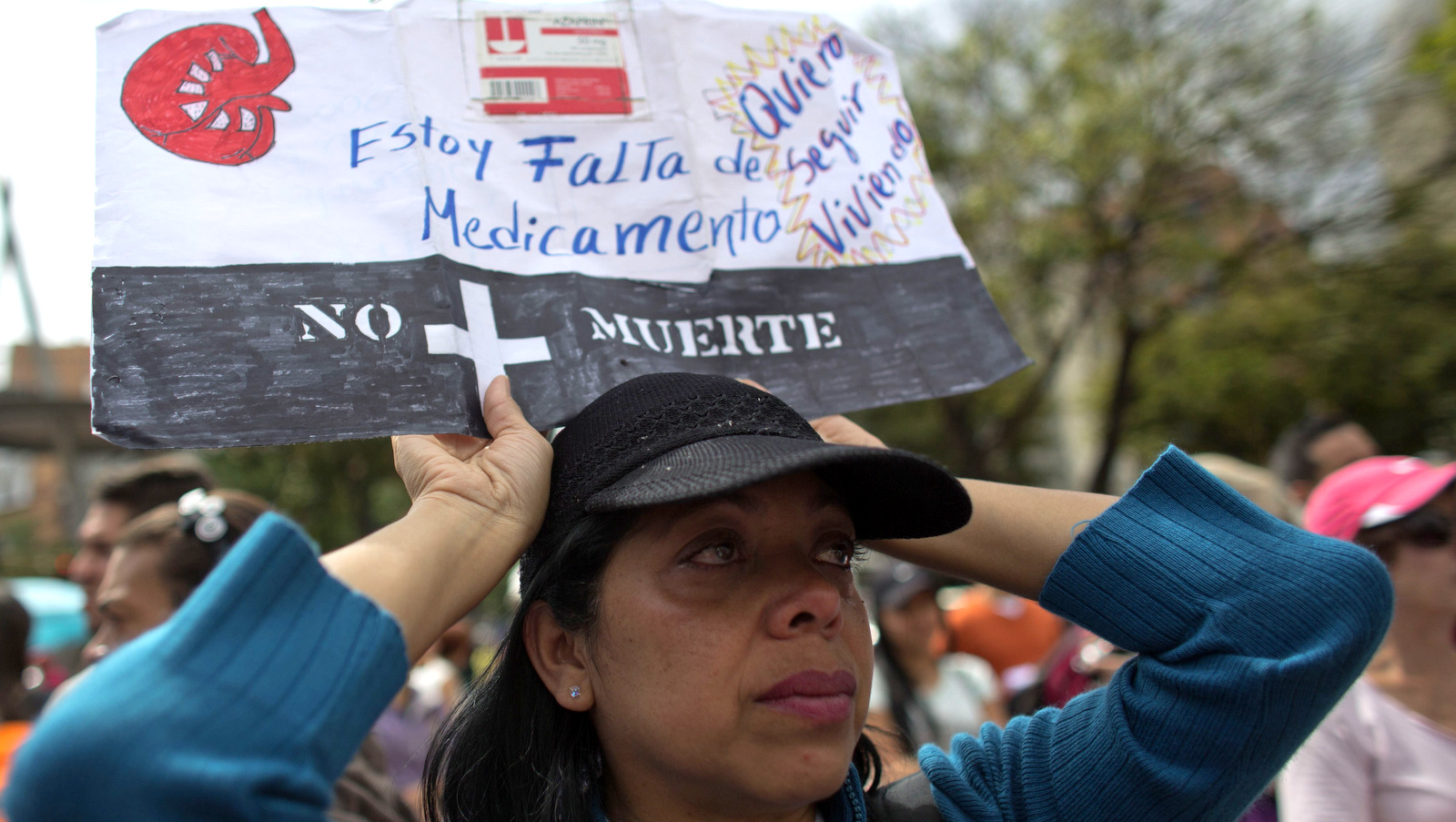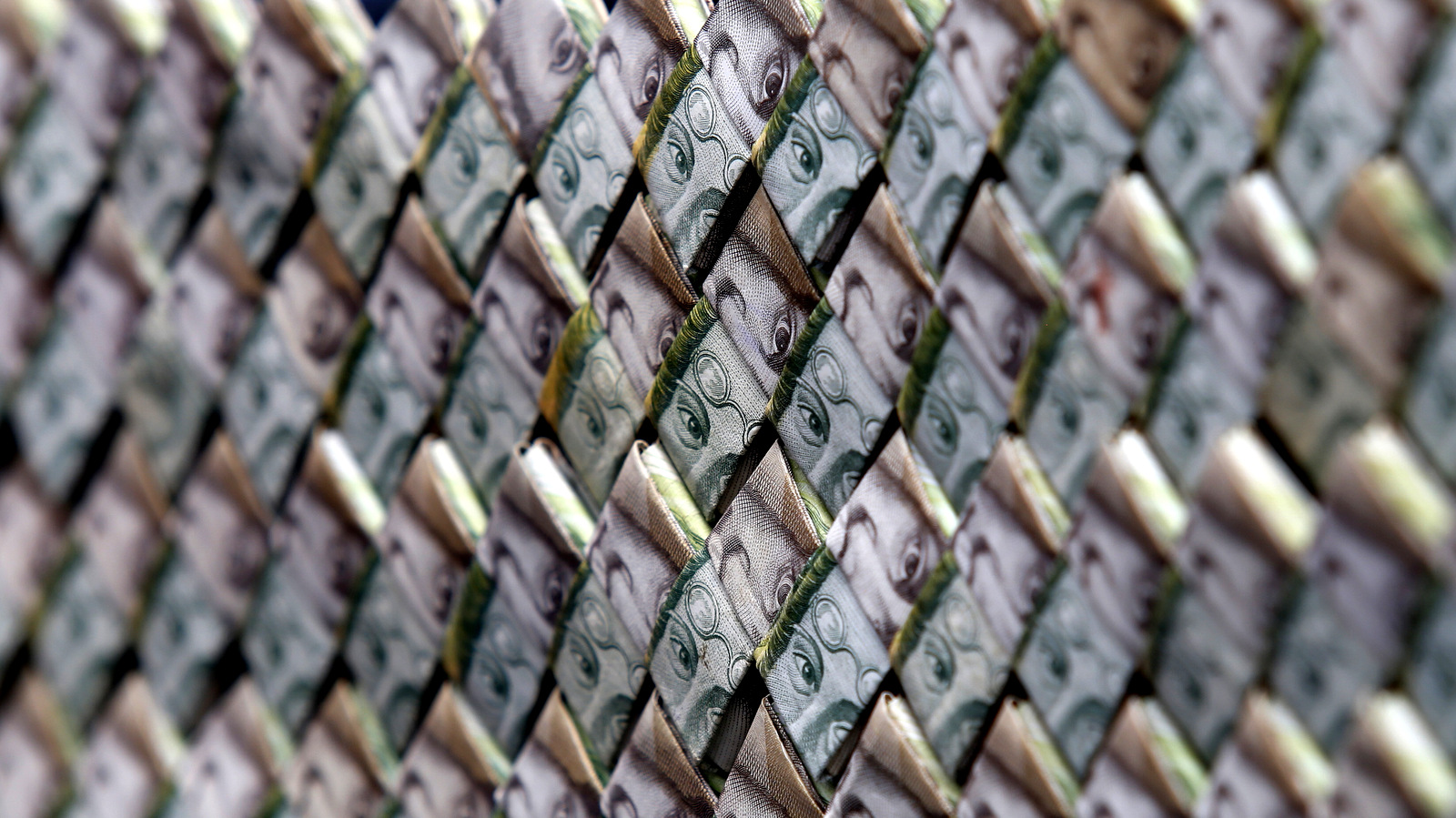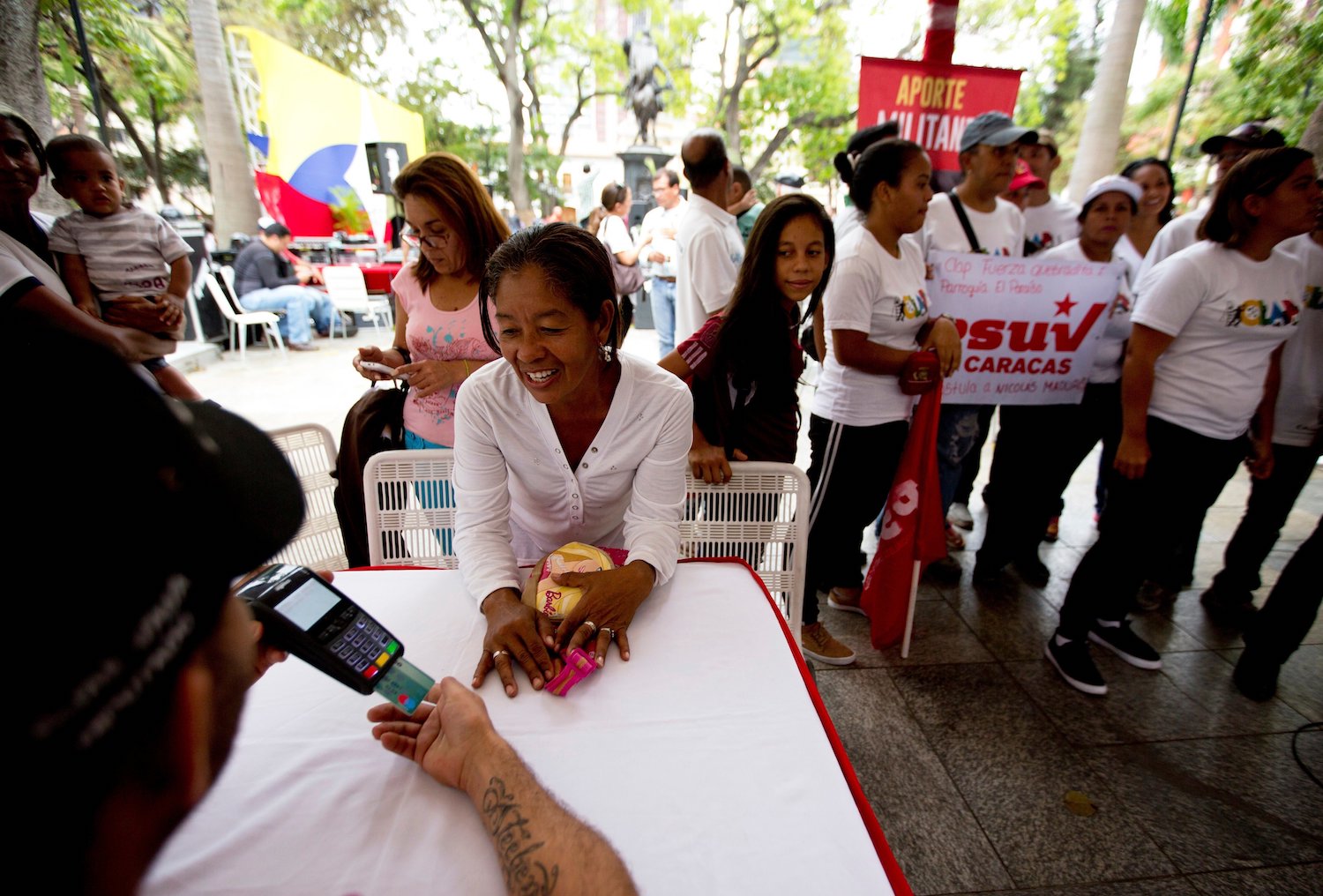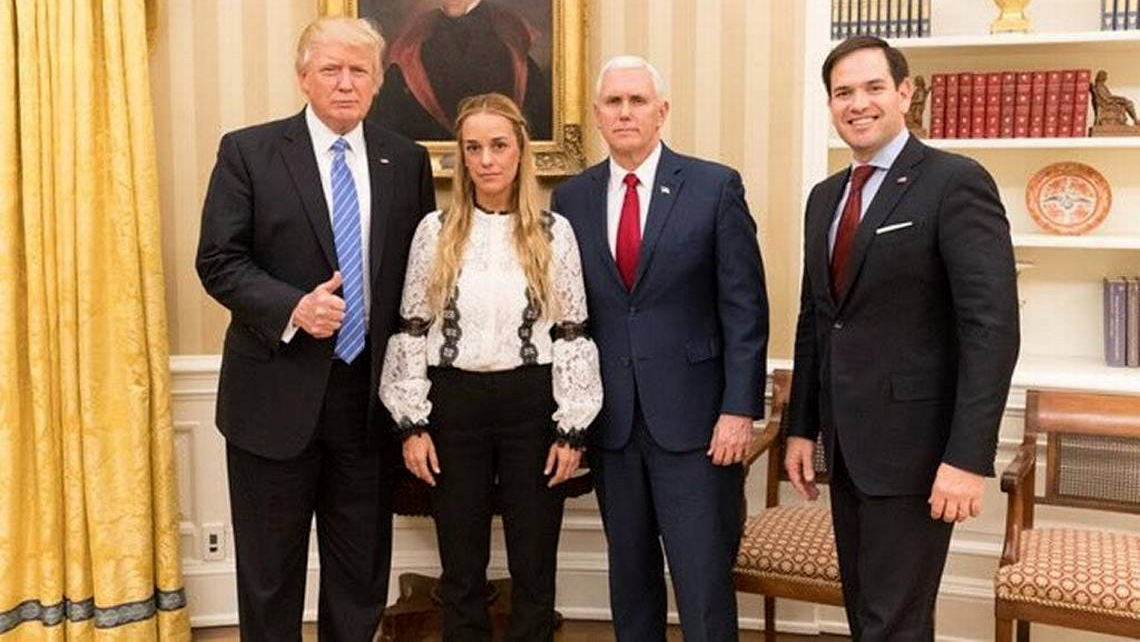CARACAS, VENEZUELA — With U.S. sanctions suffocating the South American nation of Venezuela, incumbent President, and U.S. target, Nicolas Maduro is preparing for an election in late May that will likely result in his retaining his office. This is unfortunate for Washington, which has thrown its lot in via millions of dollars lavished on an opposition that — wracked by “chaos” at the top and violence at the bottom — has been decimated as a “direct result of the Chavista victory in the election of the Constituent Assembly” and other recent local elections, according to the former Consul General for Venezuela, Jesus Rodriguez Espinoza.
Such attempts at destabilization notwithstanding, there are signs that the government under the leadership of Maduro is poised to remain in power and continue making further economic reforms to help Venezuelans endure Washington’s economic warfare against the socialist nation as expressed by Mr. Espinoza, who now lives in the capital of Caracas, explained to me, saying:
The economy is still functioning but it is tough…we recently saw the bolivar drop in value from 200,000 per ten [US] dollars to over 600,00…but even faced with this many people still favor Maduro over the alternatives.”
Espinoza explains how his country continues to resist this U.S.-driven destabilization and is in the process of making sweeping changes to economic policies to try to ease the pain from these attacks. These U.S. sanctions have grown several times since Donald Trump became president and include hostile measures, such as what is essentially an embargo of the country’s oil exports, Venezuela’s chief source of revenue.
This a major factor for the economic devastation in Venezuela; but, even if the country could sell the oil, it would have to put it in into a market dominated by the Organization of the Petroleum Exporting Countries (OPEC) which, led by Saudi Arabia, manipulates oil prices. This often results in decreasing prices, even though the organization claims this to be the opposite of its objective. While Venezuela has found some mitigation through debt relief from Russia, as well as oil-for-cash loans by China, losing the U.S. market for its oil and the restrictions on the country’s national oil company, Citgo, in the global banking system still breed hard times. According to Mr. Espinoza:
The most visible effects of the sanctions are connected to the oil industry that has big problems financing its activities and this has an important impact in the oil production levels that have been declining a lot recently but another important element is the impact [of the sanctions] in the import of food and medicines. ”
This other set of sanctions described in the second part of that statement Mr. Espinoza refer to rules that specifically target “new debt transactions related to the exportation or re-exportation of agricultural commodities, medicine, medical devices, or replacement parts and components.” These sanctions, on a country like Venezuela that imports most of its domestic food supply, are incredibly damaging and only hurt the poorest citizens. As for restricting the importation of medicine and medical supplies, the U.S. won’t allow it but then will later use attacks by U.S. media about how “Venezuela’s Health Care System Ready To Collapse Amid Economic Crisis” justifies further sanctions.


Carmen Vargas holds a sign reading: “I’m short of medication. I want to keep living. No more deaths.”, during a protest against medical shortages, in Caracas. Feb. 8, 2018. (AP/Ariana Cubillos)
Sanctions have also targeted and frozen assets belonging to Venezuelan leaders, including Maduro himself as well as members of the legally created Constituent Assembly. Other financial sanctions more broadly target the state, including measures by the U.S. Department of Treasury to restrict “transactions related to, provision of, financing for, and other dealings in certain bonds.”
In attempts to counter this war waged from Wall Street (which facilitates the oil embargo and even has a friendly investment banker candidate in the presidential race), the most recent major change in the Venezuelan economy was the launch of the state’s alternative digital currency, the Petro, as an answer to the manipulation of its hard currency, the Bolivar. On top of these macroeconomic changes, Caracas has also made changes to help regular Venezuelans, and expanded the social safety net — under conditions that would have countries like the U.S. privatizing and cutting every public program they could.
After last year’s massive street ‘protests’ and the bright U.S. spotlight given to leaders of the opposition to Maduro’s United Socialist Party of Venezuela (PSUV), like Leopoldo Lopez and others — who first encourage Washington to place more punitive sanctions on the people of Venezuela and then use this suffering to promote the legitimacy of their cause — that opposition is now almost silent, despite maintaining control of the legislature.
Those efforts by the opposition were countered by the PSUV’s changes to economic policy, which have turned the tables on Washington such that Maduro now seems positioned to remain in office in an election slated for next month. While no single change can fix the current condition of Venezuela, the PSUV’s response to the crisis has been both humane in the Bolivarian tradition and also backed by solid principles and reasoning, as explained by Espinoza.
The economy and the Petro
The first major Venezuela-shaking issue likely to come to mind is the economy. The U.S. media loves to talk about the subject, but typically only as an evolution of the decades of Cold War propaganda seeking any confirmation that ‘socialism means poverty.’ Yet in the case of Venezuela and other states not governed by the free market, this cliche simply doesn’t ring true. It is, in fact, U.S.-imposed sanctions against Venezuela that have — in conjunction with the fall in oil prices and the embargo that created Venezuela’s inability to export to their oil to some of their largest customers — crippled the economy.
Espinoza acknowledges these troubles are real, and told me of the effects of inflation and how the most recent drop in Venezuela’s currency saw “the value of the Bolivar plunge from 200,000 to 600,000 Bolivars to $10 U.S.D.”


Venezuelan Bolivars weaved together create a purse that is for sale in La Parada, Colombia, on the border with Venezuela, Feb. 22, 2018. (AP/Fernando Vergara)
There is no single factor anyone can point to driving such seemingly random drops in the Bolivar’s value, but Espinoza said there “isn’t much the government can do when regular people and markets in Venezuela [abide by] these prices,” when they make everyday purchases.
So far, the only state institution to publish specific numbers on inflation is the opposition-controlled National Assembly. These numbers, however, include “no technical detail about the methodology for calculation” which gives the PSUV some reservations about the numbers, though ”it doesn’t sound too exaggerated” according to Espinoza.
The Venezuelan Central Bank has not published any economic report recently. Until 2015, the bank published such reports monthly, but they are now “published annually and it happens around the end of April or beginning of May. “
There are, however, some nefarious elements outside of Venezuela that are sources of currency manipulation, as Espinoza explained, such as the currency value-tracking site DolarToday, which sets currency rates for millions of transactions a day in Venezuela based on the calculations of a single expat who works at Home Depot in Alabama.
There are other concerns surrounding money beyond just inflation, which Espinoza outlined for me, saying:
The lack of cash is another phenomena that is driving Venezuelans crazy. The economy is still functioning but it is tough. [There is also a] pulverization of salaries which is creating a big vicious circle in terms of human resources: people are quitting because the salaries do not allow them to even pay for the bus.”
As far as the oil blockade and blocking of loans to Venezuela, Espinoza believes:
The most visible effects of the sanctions are connected to the oil industry, [which caused] big problems in financing its activities; and this has an important impact in the oil production levels that have been declining a lot recently.”
He adds that this lack of capital coming into the country has created problems for average Venezuelans by causing “complications with the importation of food and medicines.”
This is where the Petro comes in, as a tool both to fight currency manipulation and to bypass sanctions to better facilitate foreign investment in Venezuela. The Petro is currently available only to state actors and financial firms but, according to Espinoza, “most of the government information campaigns about the Petro [say] that people will be able to use it as a means of payment; foreigners will be able to pay for tourism activities.”
While Espinoza is hopeful the Petro will help alleviate some economic issues, he also notes that:
There is not much precise information about the current status of the sale of the Petro tokens. The government has said that after the sale of the last token they will announce the results and the second phase of the program will start, allowing people to buy and sell [a percentage of] them in a secondary market.”
Subsidizing the needy
So, with the Petro unavailable to regular Venezuelans right now, the government has been helping average citizens in other ways, almost never reported on in the U.S. — unless to demonize socialist ideas like universal healthcare. Yet, while the U.S. can’t give its people food subsidies without proof of employment or ”voluntary” community service, Venezuela has been expanding and reforming social programs to aid those most hurt by Western sanctions: the poor.
The latest reform to a Chavez-era income subsidy is the creation of the “Carnet de la Patria,” a card that works through an “elaborate system that uses a lot of technology to provide direct subsidies in the form of cash to your bank account.” So far around 16 million Venezuelans have enrolled in this program — although you wouldn’t know that from reading Western news sites like Reuters or the supposedly liberal Guardian, which according to Espinoza don’t tell their readers about such new and reformed programs for the poor. This is despite the fact that these direct subsidies are extremely popular among Venezuelans, and Espinoza and many other PSUV members “believe that [these changes are] a great decision which lots of Chavistas were requesting for years.”
There have been further measures launched — such as one “announced by our Central Bank” that will change the currency currently issued, “erasing three zeros from our bills and launching a new set of bills” — said Espinoza, outlining “Reconversion Monetaria.”
The government has also expanded another direct subsidy program that delivers boxes of food, known as CLAP boxes, directly to the neediest Venezuelans. This program “is continuing to expand” from its beginning in 2016, to a year ago when enrollment hit about 6 million, to the present. The CLAP program has been made more efficient and is primarily received by residents of Venezuela’s poorest neighborhoods, such as Petare in Caracas — where one resident told Reuters that “I and other women I know are going to vote for Maduro because he’s promising to keep giving CLAPs” — showing how Maduro still provides to this loyal PSUV voting bloc (i.e., working-class Venezuelans). Programs like these are a good part of what helps Maduro maintain the loyalty of crucial PSUV constituencies by continuing the Bolivarian principle of using the state’s wealth to provide for the poor, which is why even a program as simple as CLAP is considered “an instrument of the revolution” by the program’s director, Freddy Bernal.
Opposition and elections
One likely reason Western media has not touched on some of these more radical Chavista programs is the effect they have had of continuing to uphold decent positive poll numbers for Maduro. This proves to be inconvenient for the U.S. narrative, which portrays Maduro as a dictator despite his attaining office through the cleanest elections in Latin America.
Maduro has also been accused of being a dictator for locking up opposition members (most of whom accepted piles of cash from the U.S. government) to sway elections. These are standards unfairly applied to Venezuela, as most recently evidenced by the fact that apparently Western countries like Spain can lock up opposition officials like the independence leaders in Catalonia (although to be fair, Spain and Venezuela have restored relations, but there were still never any Western sanctions targeted at Madrid) while Venezuela is chastised for arresting opposition leaders like Leopoldo Lopez who has a record of participating in coups — such as the one against Hugo Chavez in 2002.
As explained by Espinoza, this isn’t the full story and there is still support for the PSUV, which shows when you look at the results of “recent local and governors’ elections, as well as the constitutional referendum that created the Constituent Assembly, which have ended in victories for the PSUV.”


A member of the pro-government United Socialist Party of Venezuela, PSUV, donates to finance the Party, during a rally in Caracas, Venezuela, April 16, 2018. (AP/Fernando Llano)
While the PSUV doesn’t necessarily pull a clear majority in these elections, it still pulls strong enough numbers to keep the opposition fractured and. “Maduro, right now, only has an approval rating in the high 20s, but even the strongest opposition candidates only poll around nineteen percent,” leaving Maduro in what is likely a safe position for the upcoming presidential election, said Espinoza. While this doesn’t promise to be a solid win in the model of Chavez, it nonetheless signals that Maduro will be president again despite Washington’s best efforts.
Another noticeable change in the state of the opposition is that they’re no longer fawned over by media, although Espinoza believes “that their recent meeting with Vice President Pence in Lima is a sign of the full support they have” from Washington, but that “maybe the U.S. has lost the confidence in them solving the ‘problem’ by themselves.”
Espinoza does believe “the opposition still has an important support base,” but “the problem is that their erratic behavior and lack of leadership have made evident,” to both Washington and Venezuelans. “their lack of qualifications to solve the problems of the country,”
As for why the street protests the U.S. was so keen on exploiting have died down, Espinoza primarily sees that as a “direct result of the Chavista victory in the election of the Constituent Assembly and the chaos within the opposition leadership. “ Espinoza also believes part of the distrust of the opposition “comes from their relationship to the U.S.,” which isn’t trusted even by more right-wing leaders in Latin America to fairly facilitate regional politics (probably for good reasons).
This U.S. support is no small matter either, with Washington sending over $100 million to the opposition in the years between 2002-10, with another $20 million pledged by Obama. It’s important to remember how Venezuelans likely view this kind of spending on the political process in their country, since they (like several other Latin American countries) have stored in memory a U.S.-backed coup (recent enough not to be forgotten by most Venezuelans), attempted despite Hugo Chavez’s having won the election prior with nearly 60 percent of the vote.
As for the “erratic behavior” referred to by Mr. Espinoza, this has often included unpopular measures taken up by the opposition, such as using Washington’s cash for organizing, funding, and arming rabid “anti-Maduro protesters,” whose preferred method to voice their complaints was provoking state authorities. None of this helps with what Espinoza calls the “chaos within the leadership,” which is often demonstrated by political figures like Lilian Tintori, the wife of Leopoldo Lopez, who met with Donald Trump and convinced him to call for the release of her husband.


President Donald Trump, Vice President Mike Pence and Sen. Marco Rubio meet with Lillian Tintori, wife of Venezuelan opposition leader Leopoldo Lopez. (White House Photo)
Tintori also has her own problems as a result of her attempt to start her own political career, such as an incident where she was caught with crates of $10,000 worth of Venezuelan bolivares found stashed in a truck registered in her name. The only people this doesn’t bother are other wealthy politicians in the National Assembly, who are friends of people like Lopez and Tintori and have tried to pass legislation to unconstitutionally grant amnesty to these corrupt individuals.
Still, the opposition’s best hope is to participate in (rather than boycott) these next elections, although their candidates will likely perform poorly. This has left the opposition with a dilemma, which Espinoza explains comes from the fact that the opposition would “cry for early elections for years, and now they call this early election UNDEMOCRATIC, even though it is the same system they used a few months ago in the governors’ elections.”
With all of this behind him, it’s no surprise that most PSUV members expect Maduro to remain as president after the next election. According to Espinoza, the hope of Maduro continuing as president is that the aforementioned economic reforms and programs for the needy will be expanded further, even though many people also realize there will likely be a new “radical international attack and new sanctions, so things might get worse.”
Top Photo | A supporter of Hugo Chavez cries as she holds pictures of Chavez and President Nicolas Maduro during a rally marking the fifth anniversary of Chavez’s death, in Caracas, Venezuela, March 15, 2018. (AP/Fernando Llano)
James Carey is journalist and editor at Geopolitics Alert. He specializes in Middle East and Asian affairs.
<!–
–>
Source Article from https://www.mintpressnews.com/venezuelas-ex-consul-general-to-us-speaks-with-mintpress-on-sanctions-petrodollar/241056/
 RSS Feed
RSS Feed















 April 25th, 2018
April 25th, 2018  Awake Goy
Awake Goy  Posted in
Posted in  Tags:
Tags: 













